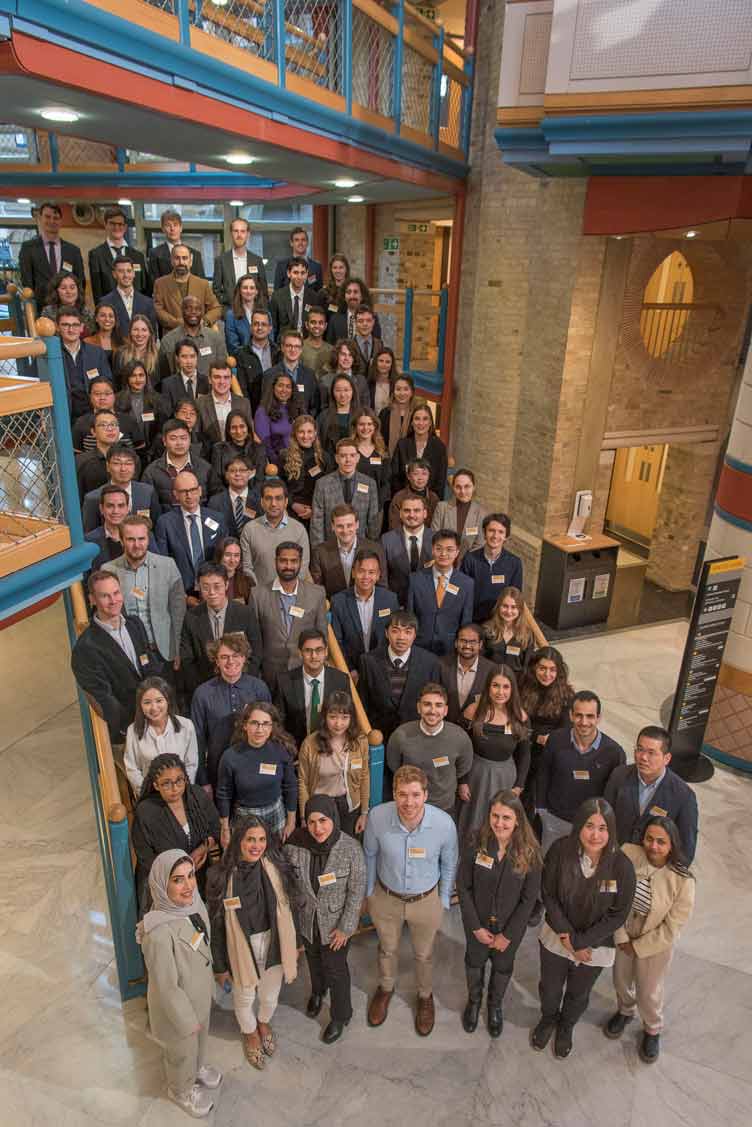Commercialisation training
The commercial opportunities for graphene are huge, but to find success we need people who understand the technology and the market. Fostering a spirit of innovation and entrepreneurship in our students is an important objective of the Graphene NOWNANO CDT.
As part of your training, in your third year your will undertake a three month commercialisation training programme which includes:
- introductory sessions,
- guidance on how to develop a commercial idea from research,
- how to progress from idea to market,
- what not to do,
- how to put together a business pitch,
- how to approach investors,
- what can go wrong,
- and much more.

I found the Innovation and Commercialisation of Research unit to be one of the highlights of the programme. It allowed me to develop solid business awareness and... also gave me invaluable insight into the world of entrepreneurship.
Julio M. Rios de la Rosa / CDT graduate based in the Faculty of Biology, Medicine and Health
EnterpriseTECH programme

In 2024 our CDT students took part in the EnterpriseTECH programme, run by the University of Cambridge’s Judge Business School.
EnterpriseTECH is an immersive learning experience shared with students from a range of research backgrounds. It consists of an intensive four-day lecture series, hands-on workshops, supervisions, and practical application to real-world projects, helping to develop versatile entrepreneurship skills and valuable enterprise networks.
The early-stage technologies selected as commercial feasibility projects for teams to work on are usually STEM-focussed. This year, due to the large cohort, the projects were divided into 2 groups:
- Earth themed
- Human themed.
The programme begins with Launch Night in Cambridge where the students met their supervisors and the inventors behind their projects. The students work in a small team learning how to identify opportunities, evaluate technology ideas and sustainable approaches to entrepreneurship. They have a period of 10 weeks to work on the projects before returning to Cambridge for Pitch Night, the finale of the programme when each team demonstrates their business presentation skills, followed by questions from a team of guest judges.
I think it will push us out of our comfort zones and we will gain some valuable skills that can be applied in any business environment, not just start ups/ spin outs. Just learning the ‘business language’ and all the acronyms they use will be useful for anyone, even people staying in academia, because I’m sure we will all encounter business people at some stage.
Hannah Burnett / CDT Student
Recent commercialisation highlights
Our students have built on their success from this training and are creating companies, winning investments and awards, and developing products to market.
- Sleep mapping: Following completion of the commercialisation training programme, CDT students Scott Dean and Vicente Orts Mercadillo put their skills to good use and developed Graphene Trace, for sleep mapping, an idea aimed at those who suffer from Obstructive Sleep Apnoea by offering a novel technology for sleep monitoring, diagnostics and therapeutics disguised as a mattress protector.
They were winners of the Eli and Britt Harari Graphene Enterprise Award in 2020, providing them with funding to develop their idea into a commercially-viable business. - Innovative filtration systems: Watercycle Technologies, a spinout from The University of Manchester, has developed an innovative technology that uses advanced graphene-based membranes and systems to extract lithium and other minerals from brines and water solutions. The company was founded by Dr Sebastian (Seb) whose PhD research focused on a water treatment technology known as membrane distillation, which is capable of producing drinking water from highly concentrated brines. During his PhD, Seb won first prize in the Eli and Britt Harari Graphene Enterprise Award, providing him with a grant to work towards commercialising his ideas.
The benefits of commercialisation training
Hear what our students have to say about their experience of the commercialisation training:
